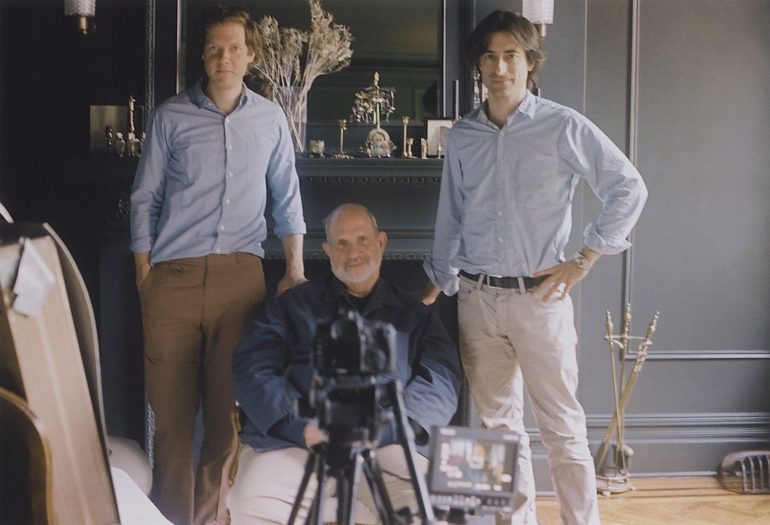Of the original movie brats, Brian De Palma is unquestionably the renegade of the group, always was and always will be. Though successful in his own right, he never achieved the blockbuster heights of Spielberg or Lucas, whilst never quite gaining the critical traction of Scorsese of Coppola either. For good and ill, the 75-year-old has never managed to transcend his stylish and violent niche, all of which should make for a compelling documentary. De Palma is compelling, but that’s all purely due to its subject.”
The approach taken by co-directors Jake Paltrow and Noah Baumbach (His third film this year, after While We’re Young and Mistress America. Who does he think he is? Alex Gibney?) is simple. In fact, it’s too simple. Plonk De Palma in front of a camera, and have him talk about his films, which he duly does. He talks, and talks and talks and talks. He’s so chatty, he could have been a character in a Baumbach narrative. His films could do a lot of talking for him, but De Palma is a keen raconteur. He’s not particularly fussy or polished, but he’s worked on so many memorable and colourful films (with some equally memorable and colourful stars) that it’s impossible not to be in thrall. He goes into detail on many wonderful shots and scenes. (Great example: Blow Out’s 360-degree office shot was intended to replicate the circular movement of recording equipment). In between the stories of how things got (or didn’t get) made, out come some great tales about the talent. Highlights include struggling to direct Orson Welles in Get To Know Your Rabbit (What do you mean you’ve never seen it?!), Sean Connery’s baulking at the multitude of squibs used in a shooting scene in The Untouchables, and the antagonism between Michael J. Fox and Sean Penn on the set of Casualties of War.
De Palma is exhaustive in its reach, covering every film the director made from his college days (Screenings of Vertigo and French New Wave classics set him on the path to filmmaking) right up to his latest film, 2013’s Passion. Every film gets its moment, even the less reputable ones. For example, De Palma himself confesses that Mission To Mars was simply a case of trying to do too much with less than enough money. It is interesting to watch this in the light of recent critical reappraisals of some of his elevated genre pieces. Phantom of the Paradise goes from mere curio to proto-Rocky Horror, while Body Double’s voyeuristic thrills are now more likely to get the attention of Hitchcock nuts than women’s rights groups (The killer’s drill is still inescapably phallic). The luridness, the voyeurism and the dynamism of his combinations of imagery support De Palma’s own contention that he was the closest adherent to the Hitchcock playbook. For all Hitch’s influence, few displayed that influence like De Palma, and this film certainly proves it.
Where De Palma falls down is the aforementioned simplicity of its structure. As the director talks about each of his films, Baumbach and Paltrow just cut it into chronological order. It reads like a well-produced adaptation of an IMDb profile. There’s no imagination put into how it presents its subject or his works; in the interviews, there are no changes in lighting, wardrobe or setting. Worse still, for a portrait of a filmmaker, it feels incomplete when it comes to De Palma’s personal life. His childhood is dealt with quickly, and his divorces and children are barely mentioned. As it is, De Palma has more than enough stories and insight to sate his fans, yet it’s ironic that a documentary about such a visceral and colourful filmmaker should want to skirt issues in this way. How very un-De Palma.
An Irish release date for De Palma has yet to be confirmed.

